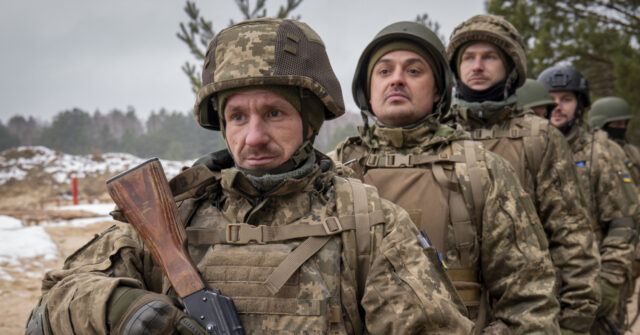In a notable shift in rhetoric, Polish Prime Minister Donald Tusk has suggested that peace negotiations for the ongoing war in Ukraine may commence this winter. Tusk’s comments come as Poland assumes the presidency of the European Council, a development which he hopes will allow Poland to play a pivotal role in advancing the peace process in Ukraine. Poland has historically been one of Ukraine’s staunchest allies and has remained highly vocal in its support amidst Russia’s persistent territorial aggression over the past decade. Tusk’s leadership marks a return to a globalist coalition, moving away from the conservative parties that had dominated Polish politics. This transitional phase in Polish governance signifies a potential shift in strategic priorities, especially concerning the crucial issue of security in the region.
Prime Minister Tusk’s statement indicates a willingness to embrace negotiations, a topic that was previously deemed contentious due to the implications of any potential concessions to Russia. The context of these negotiations is complicated by the upcoming U.S. presidential administration under Donald Trump, which is expected to play a significant role in shaping the discussions. Tusk articulated his ambition for Poland to be a key influencer during its EU presidency, stating a desire for the country to both assert its presence and effectively guide decisions that prioritize national and regional security. This signifies Poland’s proactive stance in attempting to mold the political landscape in favor of a solution that addresses its security concerns while also shaping a collaborative European approach to the conflict.
During his comments, Tusk acknowledged the complexity surrounding peace talks, noting that while discussions may begin this winter, there are still many uncertainties that must be navigated. He emphasized the shared responsibility that Poland will undertake during its tenure in the presidency, particularly in the context of the anticipated negotiations. These comments reflect an acknowledgment of the delicate balance required in diplomacy, particularly when engaging with conflicting parties in a protracted conflict like that in Ukraine. Tusk also indicated a readiness to engage with other European leaders, highlighting a significant forthcoming meeting with French President Emmanuel Macron, where they will discuss previous talks involving President Trump and Ukrainian President Volodymyr Zelensky.
The landscape of Eastern European politics suggests that Poland, along with France and the UK, could emerge as a central force in sustaining support for Ukraine, even in the face of potential U.S. shifts toward peace negotiations. The coordination among these nations reflects a cohesive strategy to ensure that Ukraine remains a priority on the European agenda, illustrating the intricate web of alliances that are forming in response to the evolving geopolitical situation. As these conversations unfold, a greater emphasis on security will likely dominate Polish foreign policy, as articulated by Adam Szłapka, Poland’s minister for EU Affairs. Szłapka underscored the criticality of addressing shared security concerns in the region, reinforcing the notion that Poland aims to take a leading role in safeguarding collective interests.
Moreover, Tusk’s ongoing dialogues with Baltic states and other European leaders speak to his commitment to fostering a unified response to the crisis in Ukraine. This approach suggests a movement toward solidarity among European nations in facing the challenges posed by Russian aggression. Additionally, engagements with other European leaders, including the anticipated visit from UK Prime Minister Sir Keir Starmer, indicate a concerted effort to keep Ukraine’s interests championed at the highest levels of political discourse. The gathering of these leaders is not merely a diplomatic formality; it symbolizes a commitment to a strategies that will hopefully yield favorable outcomes for Ukraine amidst uncertainty.
In summary, Prime Minister Tusk’s renewed focus on peace negotiations for Ukraine during Poland’s presidency of the European Council marks a significant policy shift. His intention to lead meaningful dialogues with key European and global leaders indicates a strategic pivot towards collaboration aimed at mitigating security risks. As the winter approaches, the potential commencement of peace talks suggests an essential juncture for both Ukraine’s future and the broader European security landscape. The emphasis on shared responsibility for security underscores the necessity for unity among European nations as they navigate the tumultuous aftermath of Russia’s invasion of Ukraine while simultaneously attempting to set the stage for a stable and peaceful resolution.

